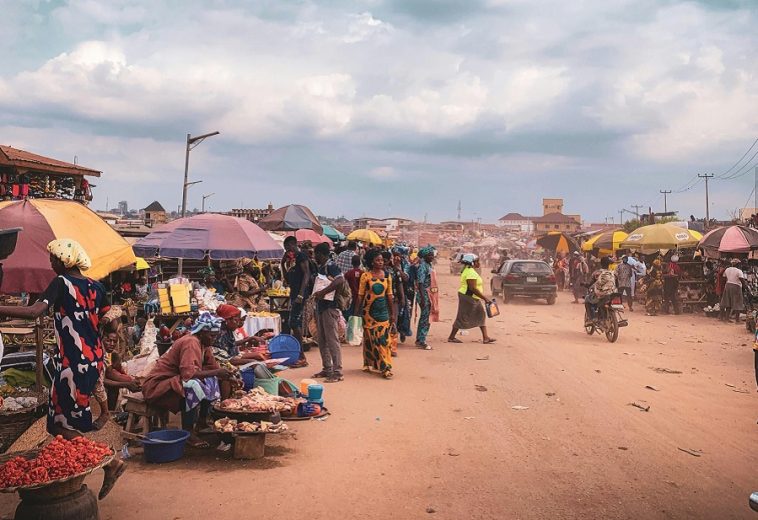There is a growing influence of female entrepreneurs in Africa, particularly in the entrepreneurial space and industries traditionally dominated by men.
According to a 2021 Mastercard Index of Women Entrepreneurs, 28% of businesses in Africa are owned by women, making it the region with the highest percentage of female-owned businesses globally. Despite challenges such as limited access to capital and societal barriers, African women entrepreneurs continue to innovate, drive growth, and create employment opportunities. In particular, countries such as Uganda and Botswana have consistently ranked as some of the best countries for women entrepreneurs globally.
Women in leadership, especially in entrepreneurial roles, are not only building wealth but are also driving positive social change. A report by the World Bank highlights that investing in female entrepreneurship could boost African GDP by $12 trillion by 2025. Female entrepreneurs are more likely to reinvest profits into their communities, focusing on education, healthcare, and infrastructure.
Top African Women Entrepreneurs Driving Economic Growth and Social Impact
One of the most prominent figures in Africa’s entrepreneurial landscape is Folorunsho Alakija, a Nigerian businesswoman whose ventures span oil, fashion, and real estate. As one of the wealthiest women in Africa, her story is a beacon of hope for many aspiring female entrepreneurs.
Divine Ndhlukula from Zimbabwe, the founder of Securico, has become a trailblazer in security services. Starting her company from scratch, she now leads one of the largest security firms in Zimbabwe, employing thousands of people.
Isabel dos Santos, from Angola, has made headlines as one of Africa’s richest women. Her ventures span telecommunications, oil, and banking, making her a powerful influence in the business world. Dos Santos is known for challenging stereotypes and pushing boundaries in industries where women are underrepresented.
Tabitha Karanja, founder and CEO of Keroche Breweries, has also broken through the glass ceiling in a male-dominated industry. From establishing the first large-scale brewery in Kenya owned by a woman, Karanja’s success illustrates the unstoppable force of female entrepreneurship in Africa.
Egypt’s Aalaa Gamal is an emerging voice in fintech and social entrepreneurship, striving to bridge the gap between technology and financial inclusion in North Africa. Similarly, Morocco’s Salwa Idrissi Akhannouch, founder of Aksal Group, is a dominant force in retail and luxury goods, with her company owning Morocco’s largest shopping mall.
Women like Bethlemen Tilahun Alemu, founder of SoleRebels in Ethiopia, exemplify this. Her footwear company produces eco-friendly shoes and creates sustainable employment for artisans. Alemu’s model has gained international recognition for its ethical production practices and social impact.
Kenya’s Njeri Rionge, co-founder of Wananchi Online, has made a significant impact in the tech sector by providing affordable internet services to millions across East Africa, boosting both connectivity and entrepreneurship.
Rebecca Enonchong, the founder of AppsTech, not only made waves in the tech industry but is also known for her advocacy in empowering African start-ups, further cementing the continent’s path towards sustainable growth.
Folasade Femi-Lawal, a leading entrepreneur in the energy and infrastructure space, advocates for more inclusive funding opportunities. Her work in Nigeria showcases the need for a more equitable business environment.
In South Africa, Mamiki Matlawa is making strides in the mining industry, while Charity Wanjiku is leading innovation in green building technologies in Kenya. These women are not just breaking glass ceilings but are setting new standards for their industries.
Sarah Shabayek in Egypt and Olola Vieyra-Mifsud in Côte d’Ivoire are two more women pushing boundaries in sectors ranging from media to manufacturing. Their success stories are proof that African women are not only ready to lead but are already doing so, inspiring the next generation of entrepreneurs.
Another shining example is Adenike Ogunlesi, founder of Ruff ‘n’ Tumble, one of Nigeria’s leading children’s clothing brands. Ogunlesi began her entrepreneurial journey from a humble start, sewing pyjamas for children. Today, her company is a symbol of creativity and resilience.
The Future of Female Entrepreneurship in Africa: Addressing the Barriers
The rise of women entrepreneurs across Africa signals a new era of economic empowerment and leadership. Women in entrepreneurial roles, are not only building wealth but are also driving positive social change. Female entrepreneurs are more likely to reinvest profits into their communities, focusing on areas such as education, healthcare, and infrastructure.
The financing gap for female-led enterprises in Africa is alarming. With the right support, the future of female entrepreneurship in Africa looks bright. African governments are beginning to take notice. In Rwanda, for instance, women hold 61.3% of the seats in Parliament, demonstrating a high level of political commitment to gender equality. This political shift is fostering an environment where women entrepreneurs can thrive.
Addressing these issues of gender representation and financial empowerment requires efforts from governments, financial institutions, and the private sector to ensure equal opportunities for women in business.




